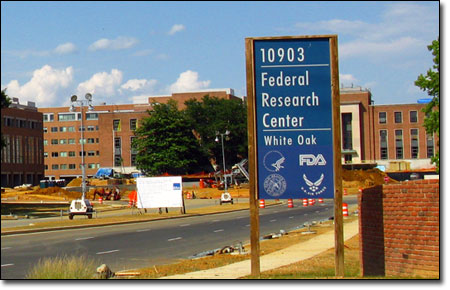When the FDA would offer only “no comment” on a notorious incident last summer, Felice J. Freyer, a medical writer at The Providence (R.I.) Journal, was disappointed but not surprised. She published her story about an FDA matter (the use of unapproved IUDs) without the FDA’s input.
But Freyer became concerned when, four days after her story came out, the FDA posted on its website a “consumer update” that answered some, but not all, of the questions she had posed to the agency.
“Turns out the FDA’s position was not the ‘no comment’ I received,” Freyer wrote in an account of the incident posted on the AHCJ website.

FDA headquarters in White Oak, Md.
(Photo by thisisbossi via Flickr)
“I don’t think the FDA had anything major to hide,” Freyer added. “It seemed like the agency just couldn’t be bothered with my questions, preferring to focus on a statement for release on its own time.”
But the web-only consumer advisory left questions unanswered and probably reached few consumers.
Freyer, who is an AHCJ board member and chair of AHCJ’s Right to Know Committee, complained about the incident, pursuing the matter up the chain of command. She eventually received an apology, but little by way of explanation. She is sharing her experience in the hope of encouraging other reporters – especially the beleaguered folks who work for the regional media – to persist in seeking information from the federal government.
“The Obama Administration has done some admirable work posting user-friendly information on the Internet,” Freyer said. “But as long as the administration’s press officers ignore and deflect reporters’ questions, the government’s websites begin to function like a state-sponsored press, containing only the information the government wants to share, forever impervious to questioning.
“I urge my fellow journalists to push back against this trend.”




